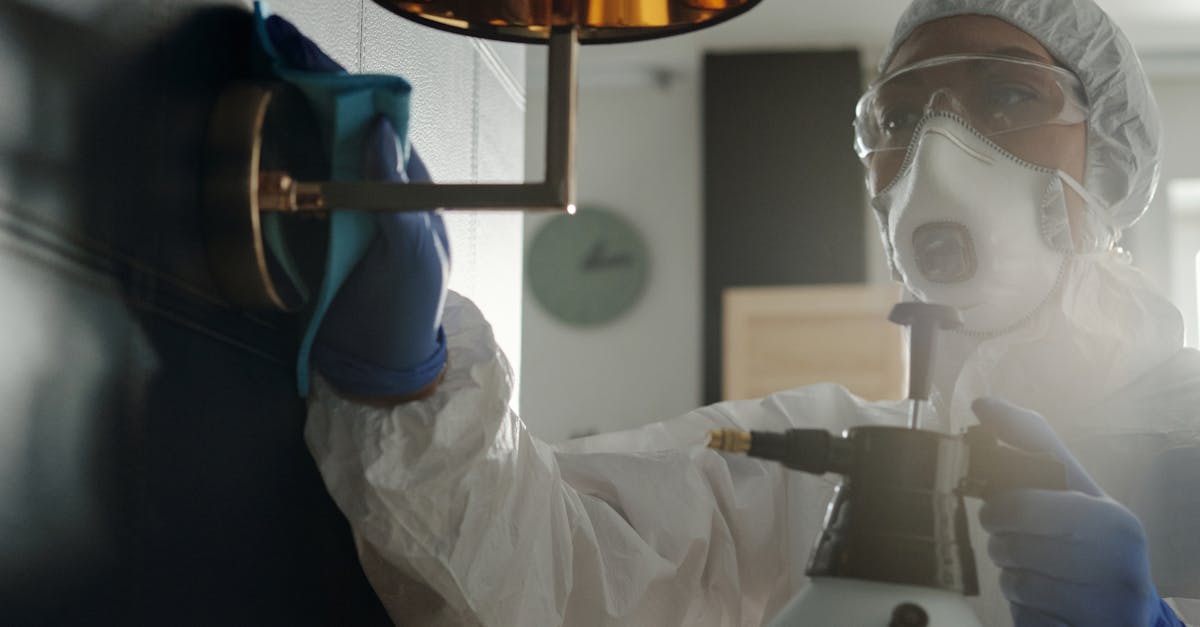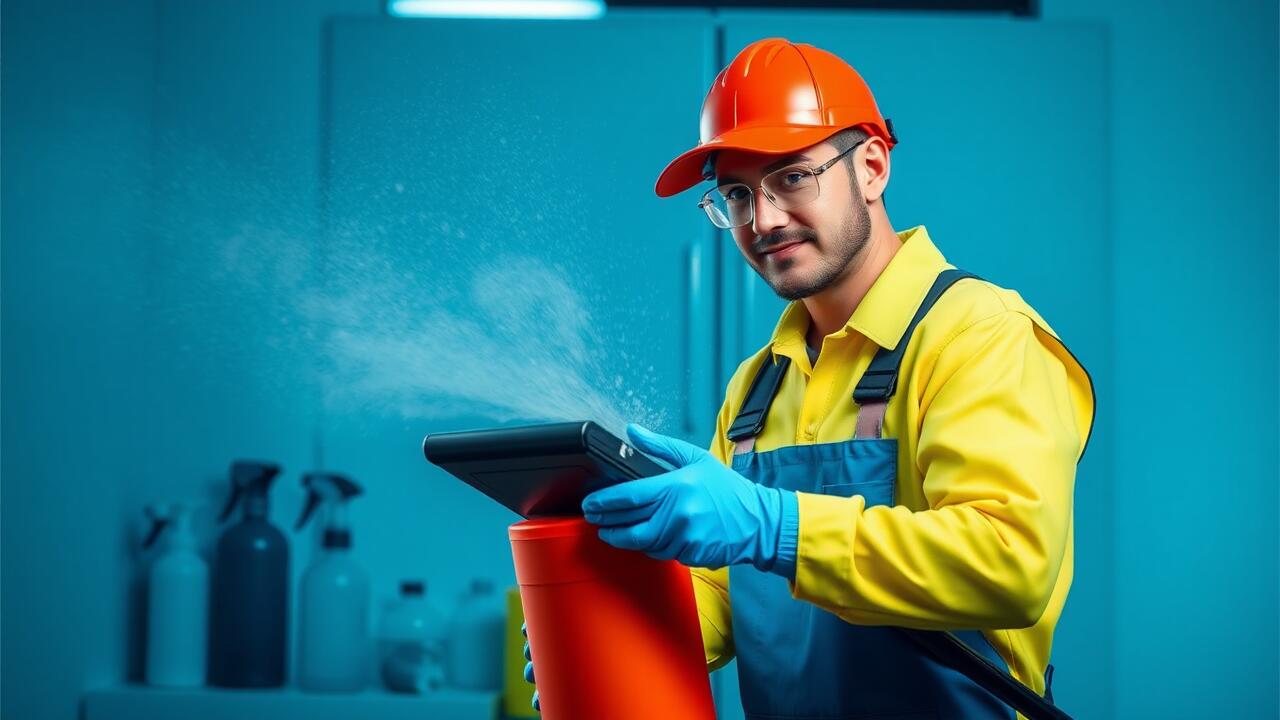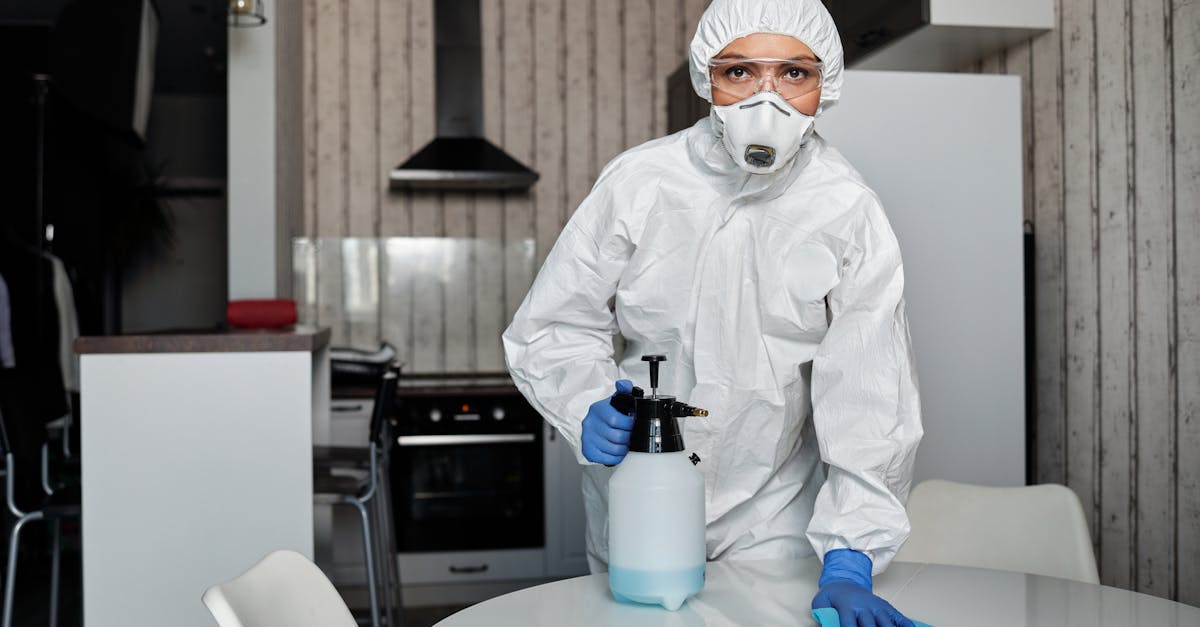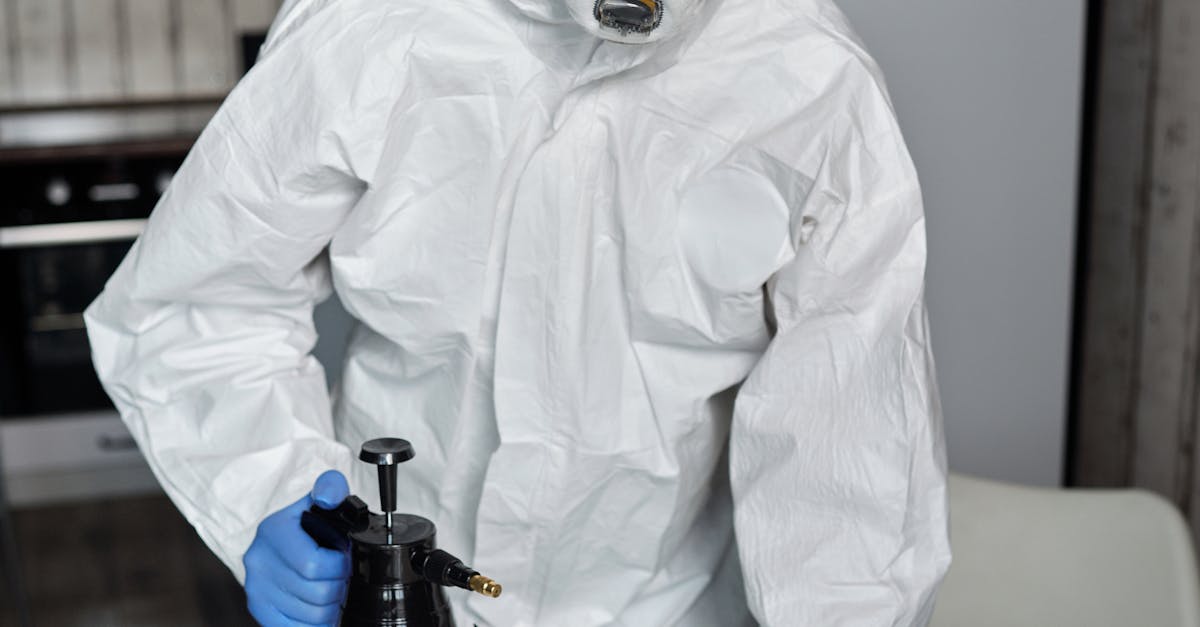
Kitchen Cleaning Chemicals
Cleaning the kitchen requires a careful selection of chemicals to ensure all surfaces are hygienic and safe, particularly when dealing with food preparation areas. Commonly used kitchen cleaning agents include multi-surface cleaners, disinfectants, and degreasers. Many products are designed specifically for kitchen environments, targeting grease and food residues effectively. It’s essential to choose formulas that are effective yet safe, as some stronger chemicals may leave harmful residues on surfaces.
When seeking cleaning solutions in Leicester, Leicestershire, chemical cleaning products are readily available in various formats including sprays, wipes, and liquids. Opting for eco-friendly alternatives can minimise environmental impacts while ensuring a clean kitchen. Understanding the specific purpose of each product aids in selecting the right chemical for the task. With such a plethora of options, consumers can find effective solutions that align with their unique cleaning needs and preferences.
Safe Practices for Food Preparation Areas
Maintaining a safe and hygienic environment in food preparation areas is essential for preventing cross-contamination and ensuring food safety. Regular cleaning with appropriate chemicals is crucial. Choose products that are specifically designed for culinary spaces, as they are formulated to eliminate harmful bacteria while being safe for surfaces that come into contact with food. Always check the labels for food-safe certifications. In regions like Nottingham, Nottinghamshire, there are specialised cleaning services, such as Nottingham, Nottinghamshire Chemical Cleaning, that can assist in maintaining these standards.
Practising good hygiene during food preparation goes beyond cleaning chemicals. Implementing safe habits, including sanitising utensils and countertops after each use, can significantly reduce the risk of contamination. Consider using colour-coded cleaning cloths to prevent cross-contamination between different types of food. Proper storage of cleaning products is also necessary. Ensure that chemicals are kept out of reach of food items and away from food preparation surfaces to avoid accidental exposure.
Laundry Detergents
Laundry detergents come in various forms, each designed to tackle different types of stains and fabrics. Liquid detergents are favoured for their ability to dissolve quickly in water, making them ideal for pre-treating stains. Powdered detergents can offer more cleaning power for heavily soiled loads. When selecting a detergent, consider factors such as the water hardness in your area and the specific needs of your laundry. Brands often vary in their formulations, which may include enzymes, surfactants, and other cleaning agents to enhance their effectiveness.
In Derby, Derbyshire, chemical cleaning options are widely available to meet the diverse needs of households. It’s important to be aware of the ingredients in laundry detergents, as some can trigger allergies or skin sensitivities. Many people now prefer eco-friendly alternatives that contain fewer harsh chemicals, reducing their impact on the environment while still achieving cleanliness. Choosing the right detergent not only ensures your clothes emerge fresh and clean but also contributes to overall fabric care, extending the lifespan of garments.
Understanding Ingredients and Their Functions
Laundry detergents consist of a variety of ingredients, each serving a specific purpose. Surfactants play a crucial role by breaking down dirt and stains, allowing them to be washed away easily. Enzymes are commonly included to target specific types of stains, such as protein-based marks from food or bodily fluids. Brighteners enhance the appearance of fabrics, making whites appear whiter and colours look more vibrant. Understanding these components can help consumers choose the right product for their needs.
In Leicester, Leicestershire Chemical Cleaning offers a comprehensive overview of these ingredients and their functions. Many laundry detergents also contain anti-foaming agents to control the amount of foam produced during washing and fabric softeners to reduce static cling and improve the feel of textiles. The choice of detergent should align with individual washing needs, taking into account the type of fabrics and the nature of the stains being addressed.
Specialty Cleaners
Specialty cleaners are designed for specific tasks that general-purpose products may not effectively handle. From oven cleaners that tackle baked-on grease to mould removers that eliminate stubborn spores, these products offer targeted solutions for various cleaning challenges. Many people appreciate the efficiency these cleaners provide, allowing for a deeper clean in areas that require more attention. Products such as descalers or rust removers are often essential in homes where water quality or fixture age presents ongoing concerns.
When considering specialty cleaners, it is prudent to evaluate the ingredients used in these formulations. Some may contain harsh chemicals that require careful handling, while others boast eco-friendly ingredients that are safe for both users and the environment. Companies like Lincolnshire Chemical Cleaning provide a range of specialised products tailored for individual needs, ensuring consumers have access to effective cleaning solutions without compromising safety. Understanding the purpose and composition of these cleaners can significantly enhance their effectiveness and user experience.
When to Use Targeted Cleaning Products
Specialty cleaners serve specific purposes and can address particular cleaning challenges more efficiently than general-purpose products. For instance, when dealing with stubborn stains on carpets or upholstery, a targeted cleaner designed for fabric types can yield significantly better results than a standard all-purpose solution. In scenarios where heavy grease has accumulated, such as kitchen hoods and ovens, utilising products specifically formulated to break down fat and oil can make the process much easier, ensuring a thorough clean with less effort.
In Leicester, Leicestershire Chemical Cleaning, specialised cleaners are often recommended for areas like bathrooms, where mould and soap scum can thrive. Using products that contain ingredients specifically designed to tackle these issues can lead to a more hygienic environment. It is important to read labels carefully to select the right cleaner for the task at hand, as using inappropriate products can sometimes cause damage or fail to address the problem effectively.
FAQS
What are the most common chemicals used for cleaning in the kitchen?
Common kitchen cleaning chemicals include bleach, vinegar, baking soda, and commercial kitchen cleaners that are designed to remove grease and disinfect surfaces.
Are there any cleaning chemicals that are safe to use around food preparation areas?
Yes, it is recommended to use food-safe cleaners, such as vinegar and bicarbonate of soda, as well as commercial products that are labelled as safe for food contact surfaces. Always ensure to rinse thoroughly after use.
What should I look for in laundry detergents?
When selecting laundry detergents, consider the ingredients listed, such as surfactants, enzymes, and fragrances. Understanding their functions can help you choose a detergent that effectively cleans while being gentle on your clothes.
When should I consider using specialty cleaners?
Specialty cleaners are ideal for targeted cleaning tasks, such as removing hard water stains, limestone deposits, or mould. Use these products when standard cleaners do not effectively address specific stains or build-up.
How can I ensure safe use of cleaning chemicals?
To ensure safe use, always read the labels for instructions and safety information, wear protective gloves if necessary, and ensure good ventilation while cleaning. Store all chemicals out of reach of children and pets.





